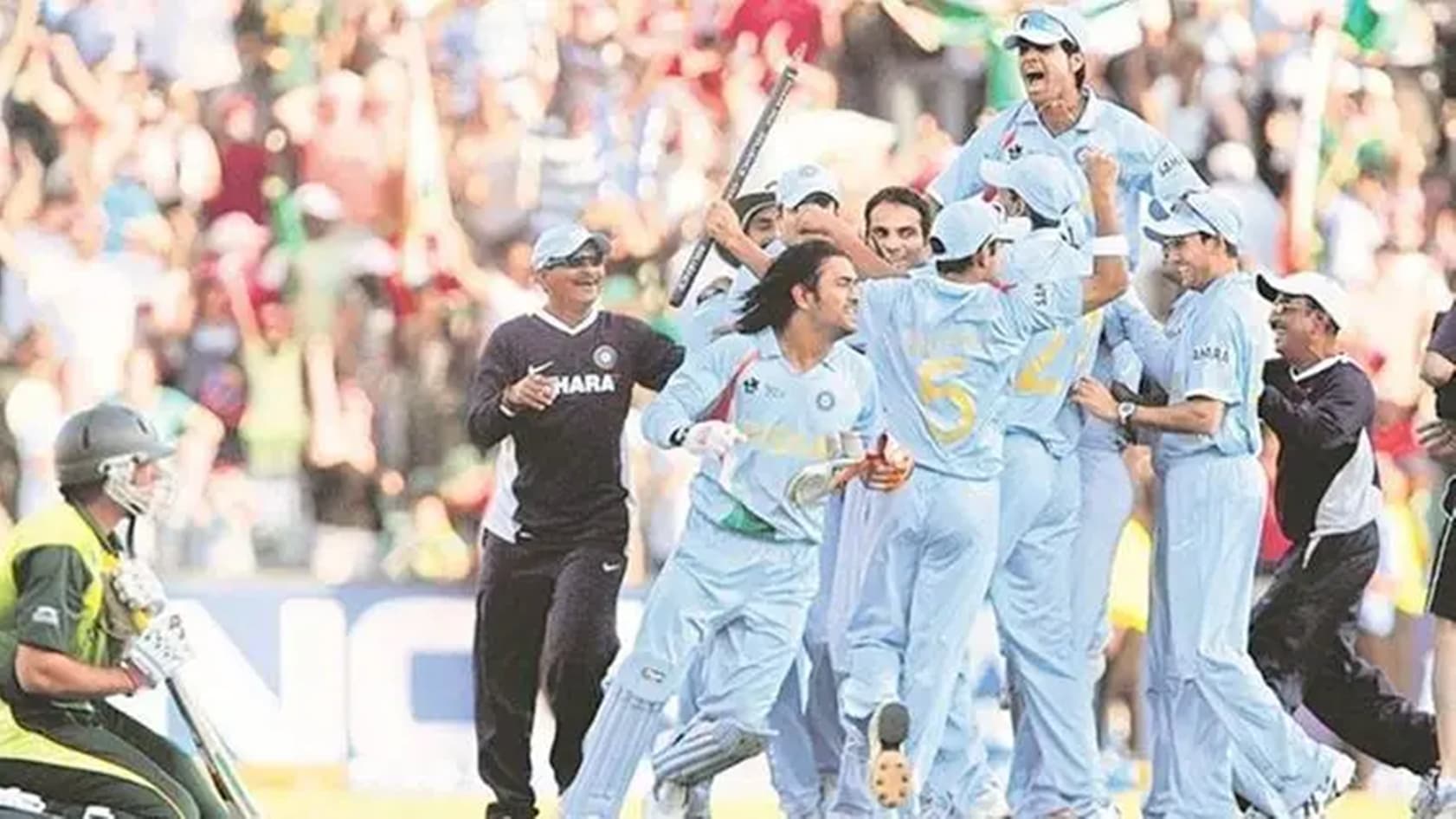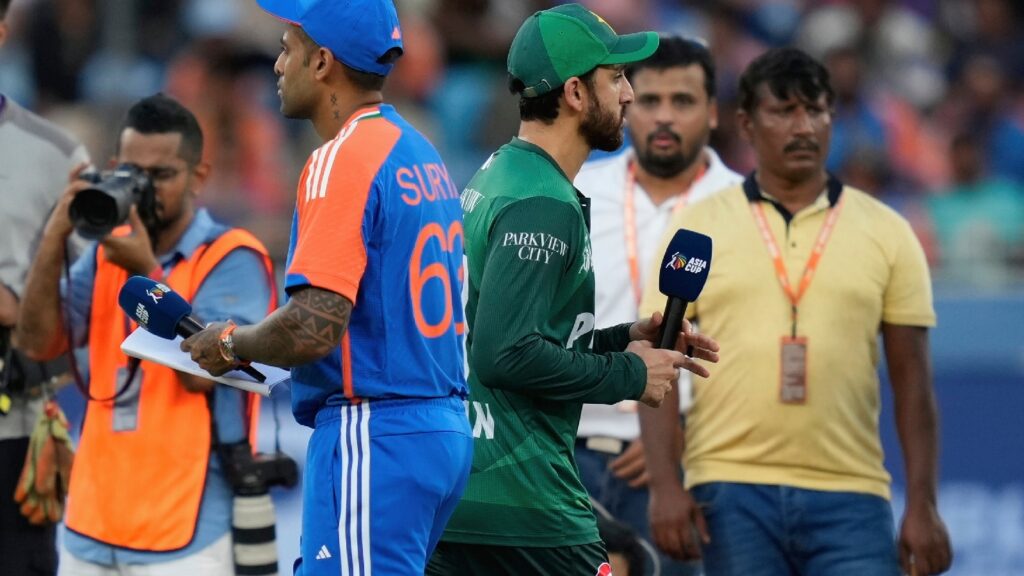India are set to face Pakistan for the third time in the 2025 Asia Cup, this time to decide the title itself. The two sides faced each other once in the group stage and in in the Super Fours and they are both now through to the final, which will be played on Sunday. Despite the two sides having played all but one edition of the Asia Cup, ODI or T20I, since its first edition in 1984, this will be only the first time that India and Pakistan face each other in the final.
India are the most succesfull team in the history of the tournament, having won it eight times while Pakistan have won it just twice – in 2000 and 2012. This year, India have looked head and shoulders above nearly all competition except for Sri Lanka, who pushed them into a Super Over in their last Super Four match of the tournament. Pakistan were also largely unperturbed against all teams they faced in the tournament except India, to whom they lost by seven wickets in the group stage six wickets in the Super Fours.
Overall, this will be the sixth time that the two sides will be facing each other in the final of a tournament consisting of more than five teams, and the first one since the final of the 2017 Champions Trophy. Pakistan lead the head-to-head in these matches 3-2.
Let’s take a brief look at how each of those matches went:
1. 1985 Benson & Hedges World Championship of Cricket: India win by eight wickets
One of the most memorable victories in the history of Indian cricket, a number of players involved in that win rate it higher than the seminal 1983 World Cup win. There were quite a few players in the Indian team who had also faced the might of the West Indies in 1983 and the likes of Ravi Shastri, who was player of the tournament, says that this was the year when that team hit its peak. The Javed Miandad-led Pakistan batted first and were undone by Kapil Dev and Laxman Sivaramakrishnan. The pacer and spinner took three wickets each and limited Pakistan to a score of 176/9. India chased it down with ease, with Shastri remaining unbeaten on 63 off 148 balls and sharing a 10-run opening stand with Krishnamachari Srikkanth.
2. 1986 Austral-Asia Cup: Pakistan beat India by one wicket
A thriller for the ages, India’s top three put up 216 runs on the board but the team ended up finishing their 50 overs with a score of 245/7. Pakistan’s chase was then all about Miandad, who finished unbeaten on 116 off 114 balls. Chetan Sharma with three wickets was India’s highest wicket-taker but it is his and Miandad’s last act that has ended up in India-Pakistan cricket lore.
Miandad was on strike with Pakistan needing four runs to win off the last ball and Sharma was the bowler. The latter missed a yorker and sent in a full toss, which Miandad sent flying over midwicket for an astonishing last-ball six. The shot is widely regarded to have started an era of dominance for Pakistan which culminated in them winning the World Cup in 1992.
Story continues below this ad
3. 1994 Austral-Asia Cup: Pakistan beat India by 39 runs
Unlike the 1986 final, the 1994 edition was a far more straightforward affair. Saeed Anwar and Aamir Sohail put up an entertaining stand of 96 runs but Pakistan finished with just a score of 250/6. India, however, could not break free against the Pakistan attack led by Wasim Akram, who finished with figures of 2/39 in 8.4 overs. Vinod Kambli was their highest scorer with 56 runs and India lost by 39 runs.
4. 2007 T20 World Cup: India beat Pakistan by five runs
 India won the inaugural T20 World Cup by beating Pakistan by five runs in the final. (Reuters Photo)
India won the inaugural T20 World Cup by beating Pakistan by five runs in the final. (Reuters Photo)
A new format and for India, the start of a new era under the captaincy of MS Dhoni. Both sides had been dumped out of the 2007 World Cup just months earlier but that memory seemed to have faded farther into the distance the closer they got to that final in Johannesburg. Gautam Gambhir’s 75 off 54 balls, and a whirlwhind 30 not out off 16 balls by a young Rohit Sharma, helped India get to a score of 157/5. Notably, Pakistan managed to keep the seemingly unstoppable Yuvraj Singh quiet with pacer Umar Gul dismissing him and finishing with impressive figueres of 3/28. India seemed to be on top and even in the clear when Irfan Pathan dismissed captain Shoaib Malik and the dangerous Shahid Afridi in the 12th over. But Mishah-ul-Haq powered a rearguard action and almost single-handedly brought Pakistan within 13 runs of victory at the start of the last over, bowled, quite incredibly, by Joginder Sharma, who started with a wide. Misbah then hit a six of the second legitimate ball, bringing it down to six needed off four. And then, quite inexplicably, Misbah went for a scoop shot with short fine-leg in place to a full delivery on the stumps. Sreesanth was the man there and he gobbled up the easy chance.
5. 2017 ICC Champions Trophy final: Pakistan beat India by 180 runs
This match is often cited as an example of just how utterly unbeatable Pakistan can get on a good day, regardless of their form leading up to it. They were the rank underdogs in the tournament and were crushed quite spectacularly by India in the group stage. And then, Sarfaraz Ahmed’s men went on a hot run, beating South Africa, Sri Lanka and tournament favourites and hosts England before meeting India again in the final. Virat Kohli’s side were arguably the only other team apart from England who were seen as favourites to win the tournament and yet, on the day, Fakhar Zaman’s 114 off 106 balls helped Pakistan to 338/4. Mohammad Amir then loaded up an opening spell from hell for India’s top order which was on overdrive at the time. Rohit Sharma fell for a three-ball duck, Kohli fell for five off nine balls and Shikar Dhawan was dismissed on 21 off 22, all by Amir. Hasan Ali then then took three wickets of his own and the only point where it looked like India might stand an outside chance was when Hardik Pandya was going about his innings in his 43-ball innings in which he scored 76 runs. Most of it came in an 80-run stand off 57 balls with Ravindra Jadeja but a horrible mix-up resulted in Pandya being run out. India never stood a chance after that and lost by 180 runs.


